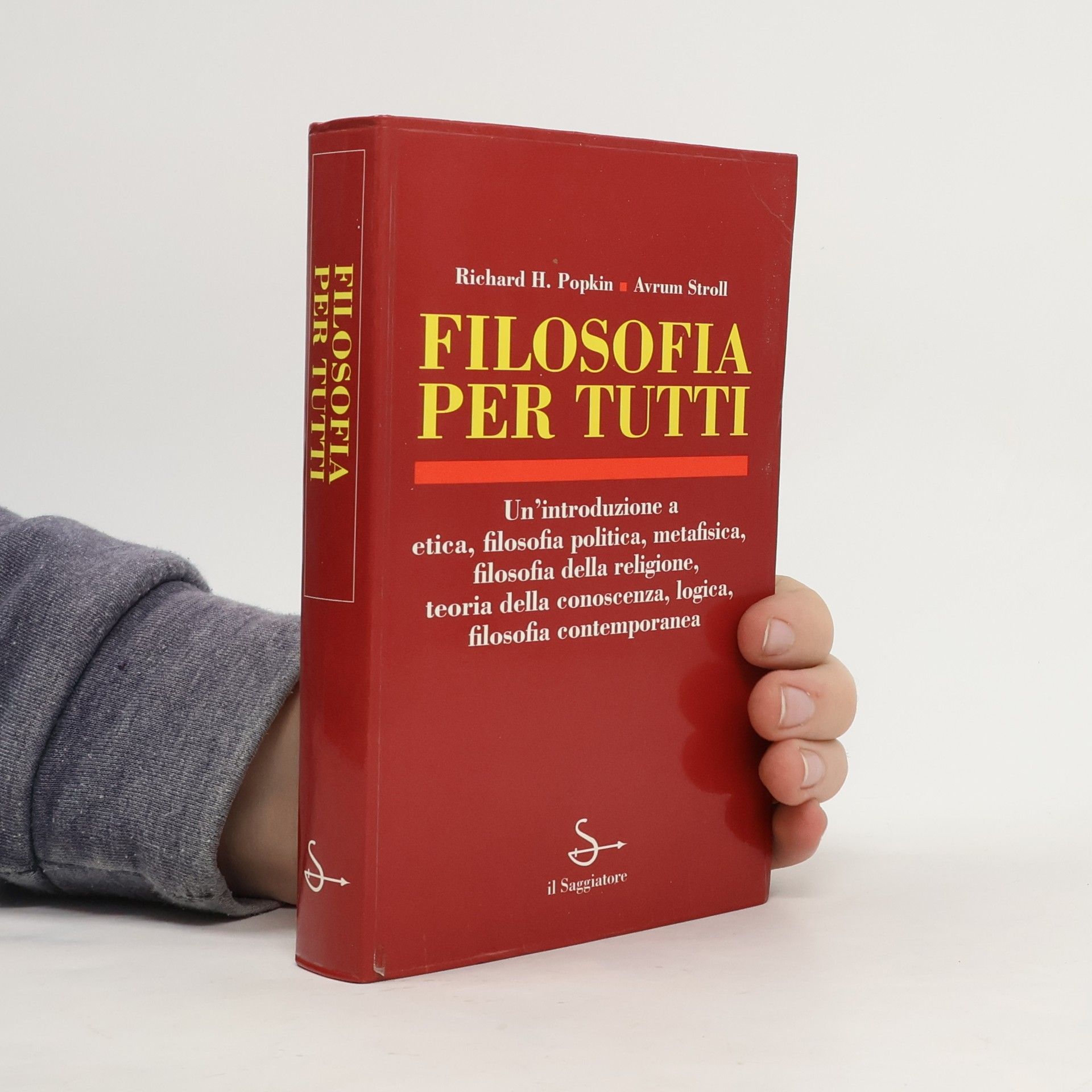Deals with modern questions such as abortion, medical practices, and professional and business principles while providing treatment of knowledge theory, metaphysics, ethics, and religious, political, and contemporary philosophy
Avrum Stroll Livres
15 février 1921 – 12 septembre 2013




کلیات فلسفه
- 585pages
- 21 heures de lecture
Le guide del Saggiatore: Filosofia per tutti
Un'introduzione a etica, filosofia politica, metafisica, filosofia della religione, teoria della conoscenza, logica, filosofia contemporanea
- 423pages
- 15 heures de lecture